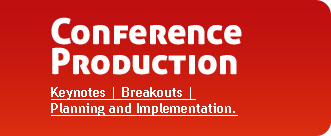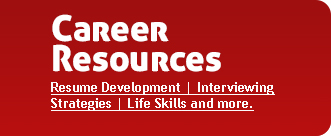Resources

At Career Services Network, we want to be your Employment Solutions provider, but we understand that sometime you just want to do some of the work yourself. We also want to be your Employment Solutions Resource provider too.
Below are several links to resources that will assist you in the recruiting and hiring process.
Red Flags to watch for on Candidate Applications and Résumés
How to Interview Potential Employees
Sample Interview Questions for Potential Employees
Illegal Questions you should NOT ask Potential Employees
Tips for Checking References
Sample Reference Check form
Resources for Background Checks
Red Flags to watch for on Candidate Applications and Résumés
Most employers spend less than one minute to review a candidate's résumé and yet if they miss these critical errors it may
- Gaps in employment - Occasionally candidates are out of work either by choice or for reasons beyond their control. However, if you see an employment gap ask why and make sure follow up and confirm those reasons during your reference check.
- Grammatical, punctuation and spelling errors - Small errors on a résumé can mean big errors on the job. Look for subtle errors like consistent punctuation and abbreviations.
- Lack of overall aesthetics - How does the résumé look? Is it sloppy, inappropriate or inconsistent? If a candidate lacks the ability to make their résumé visually appealing on paper, that same deficiency may show up in their work.
- Lack of attention to detail - If a résumé appears to be vague, there is a reason. Ask why and be willing to follow through and confirm the reason for vagueness and details during a reference check.
How to Interview Potential Employees
Most interviewers are not trained to interview candidates and as a result miss opportunities to ask the best questions to learn as much as possible about a potential employee. On top of that, most interviewers spend a good deal of time talking and explaining the job and forget to ask the candidate about their background.Applicants are also unpracticed at interviewing and don't always know how to best provide the interviewer with the information that will sell them for the job.
Follow these simple guidelines when interviewing an applicant:
- Always begin the interview by asking the candidate to tell you a little bit about themselves. This is the frequently most asked question by seasoned interviewers and gives you a good deal of insight on the candidate. Generally, candidates talk about what they perceive is important for you to hear.
- Watch non verbal behavior.
- Fidgeting can be a sign that shows a lack of confidence or when a candidate is not telling the truth.
- Lack of eye contact shows a clear lack of confidence, but beware it can be a cultural issue as well.
- Asian and Native American cultures see too much eye contact as a lack of respect.
- Caucasian and Latino cultures are more apt to give a greater level of eye contact; Latinos more so than Caucasians.
- Crossing arms or legs can often mean the candidate is bored or not interested in the job, or unfamiliar with what you are discussing.
- If a candidate appears to be "stumped" by a question, ask them if they'd like to come back to a question. Make a note to yourself and don't forget to come back to the questions.
- Make sure to ask the applicant what they know about the company or organization. An interested candidate will do research prior to their interview!
- At the end of an interview always ask a candidate if they have any questions for you. Not having a question for you shows a lack of preparation or a lack of interest in the job.
Sample Interview Questions for Potential Employees
Traditional Questions (top ten most frequently asked questions):
- Tell me about yourself, or how would you describe yourself?
- What are your most important accomplishments, or what was your greatest success?
- Describe your ideal job. What are you looking for in a position?
- What things would you like to avoid in your next job?
- Why have you left or why do you wish to leave your current position?
- What do you think of your supervisor/current employer?
- Does your current supervisor know you are planning to make a change?
- How did you get along with your boss, co-workers, and subordinates?
- How would you feel about working with someone younger, opposite sex, different culture/ethnicity?
- What has been your greatest failure
Behavioral Questions - These questions are basically asking a candidate to tell you a story from their past work history. This interviewing strategy is based on the idea that past behavior predicts future behavior. For a complete list of Behavioral Interviewing Questions Click Here
Illegal Questions you should NOT ask Potential Employees
Employers should NOT ask about any of the following, because to not hire a candidate because of any one of them is discriminatory:- Race
- Color
- Sex
- Religion
- National origin
- Birthplace
- Age
- Disability
- Marital/family status
NEVER make notes on your interview form or the candidate's application or résumé regarding any of the above. Auditors are excellent at deciphering "codes" on applications and résumé. It is against the law to discriminate anyone on any of the above.
Tips for Checking References
Most employers don't check references, and it's a unwise practice. ALWAYS do your due diligence and check references. It takes a bit of time but it's time well spent.When you call Human Resources departments they are allowed to answer on three questions:
- When did the employee begin employment?
- When did the employee end employment?
- Is the employee eligible for rehire?
If they employer tells you a candidate is not eligible for rehire, ask why. They are not supposed to tell you why, but often the do. If they don't tell you, ask the candidate. Usually the reason is a negative one, but explainable and you want to know the why!
Employers should ask candidates for references, but don't stop with the names they give you…dig!
Resources for Background Checks
Basic contact information is generally available for free at online "phone book" type pages. Many online sites offer FREE trials, or inexpensive monthly fees.Most comprehensive background checks include:
- Full Name
- Age
- Recent Address
- Address History
- Phone Numbers
- Aliases
- Maiden Name
- Misdemeanors
- Relatives
- Neighbors
- Death Record
- Associates
- Properties
- Home Value
- Bankruptcies
- Felonies
- Tax Liens
- Judgments
- Lawsuits
- Marriage
- Divorce
- Email Address
- Social Network Search
- Criminal & Sex Offender Records
Below is a list of links to proven online sites that provide background checks.











